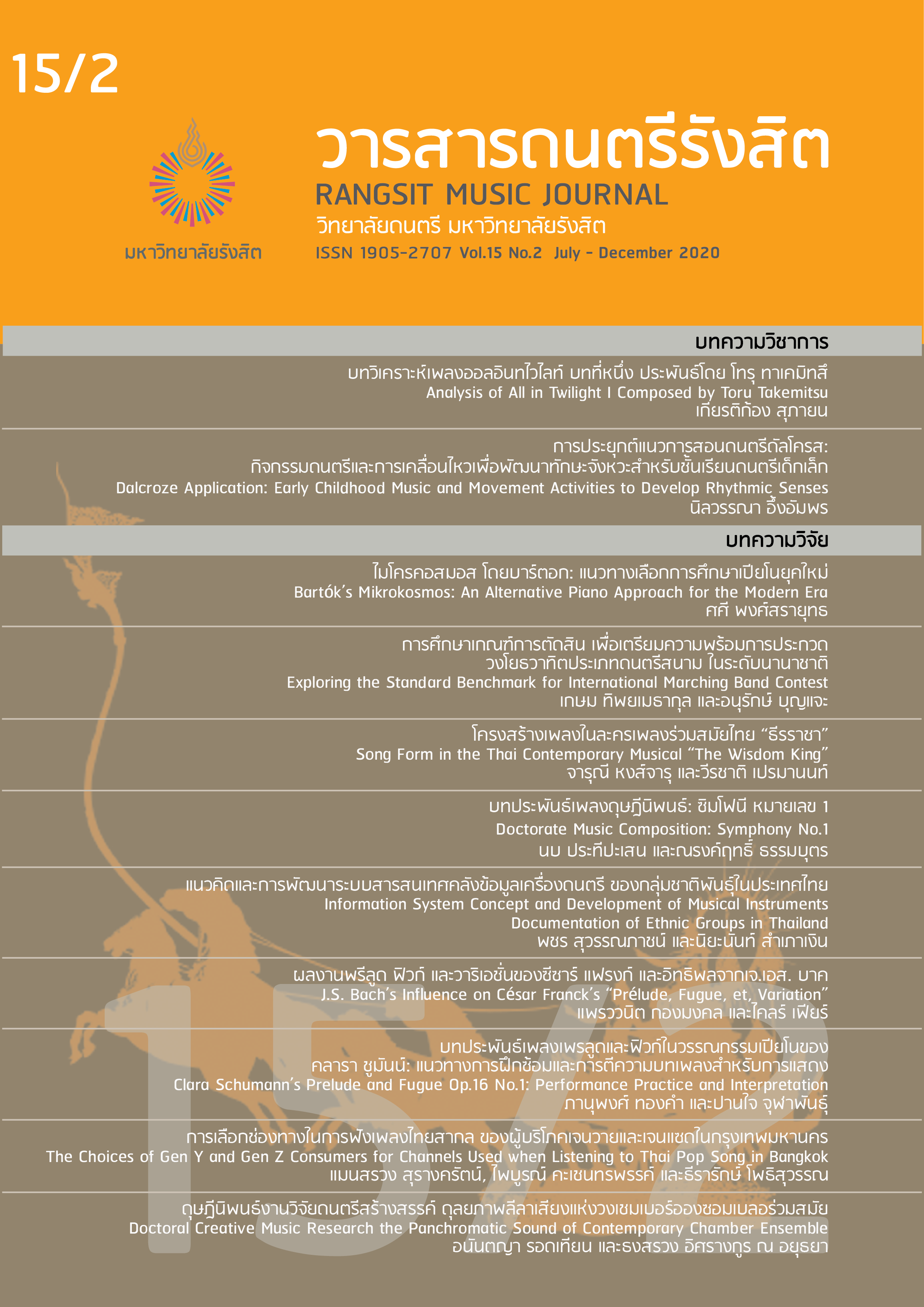Information System Concept and Development of Musical Instruments Documentation of Ethnic Groups in Thailand
Keywords:
Information System, Musical Instruments Documentation, Ethnic GroupsAbstract
In digital era, the concepts and practices of information system of knowledge management play a key role in musical instruments research, it can solve the big data problem and manages digital data at most efficiently. The musical instruments documentation is one of digital knowledge management that is to collect digital data of musical instruments of ethnic groups in Thailand in a holistic way, to analyze the influence factors of digital technology on traditional knowledge management, and to design and development musical instruments documentations by actively participate with the ethnic groups. The result of the study shown that the values of musical instruments of ethnic groups are more than just sound-producing objects, but the relation of concept, behavior, and sound that are diverse music-making in digital socio-cultural context can be reproduced, contributed new knowledge in anywhere anytime. So the musical instrument documentation can offer researchers and stakeholders as a information system not only manages the digital information system of musical instruments of ethnic groups in efficiency, but also create ethnic musical culture literacy in rapidly changing society.
References
สัลยุทธ์ สว่างวรรณ. (เรียบเรียง). ระบบสารสนเทศเพื่อการจัดการ. กรุงเทพฯ: เพียร์สัน เอ็ดดูเคชั่น อินโดไชน่า. 2545.
สุวิไล เปรมศรีรัตน์และคนอื่น. แผนที่ภาษาของกลุ่มชาติพันธุ์ต่างๆ ในประเทศไทย. เอกสารประกอบการเสนอผลงานวิจัย. กรุงเทพฯ: โรงพิมพ์กรมการศาสนา. 2544.
อรยา ปรีชาพานิช. คู่มือเรียนและการออกแบบระบบ. กรุงเทพฯ: ไอดีซี พรีเมียร์. 2557.
Andrew Treloar. Digital management Model. Access July, 12, 2019. https://andrew.treloar.net/research/diagrams/
Clayton, Martin., Herbert, Trevor., Middleton, Richard. (Editors). The Cultural Study of Music: A Critical Introduction. Ney York: Routledge. 2003
Dournon, Geneive. Guide for traditional Musical Instruments. Geneva: Art Graphiques, Impremeres Populaires. 1981.
Ilujiro Nanoka and Takeuchi. “SECI Model” Access July, 12, 2019. https://www.tlu.ee/~sirvir/IKM/Theoretical_models_of_Information_and_Knowledge_Management/the_nonaka_and_takeuchi_knowledge_spiral_model.html
http://irem2.ddc.moph.go.th/uploads/file/Knowledge%20Heritage/e%20Capture%20.pdf
Johnson, Henry M. An Ethnomusicology of Musical Instruments: Form, Function, and meaning. JASO 26/3 (1995): 257-269
https://www.anthro.ox.ac.uk/sites/default/files/anthro/documents/media/jaso26_3_1995_257_269.pdf
Maceda, Jose. A Manual of a Field Music Research with Special Reference to Southeast Asia. Philippines, Quezon City: University of Philippines. 1981.
Merriam, Alan P. The Anthropology of Music. U.S.A.: Northwestern University Press. 1964.
Rao, Madanmahan. (Editor). Knowledge management Tools and Techniques: practitioners and Experts Evaluate KM Solutions. Burlington, MA: Elsevier. 2005.







